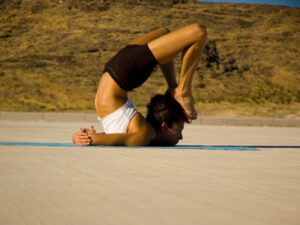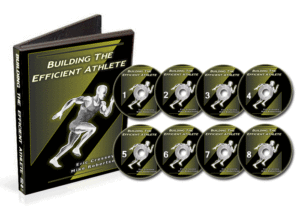Taking on the Yoga Question
What do you think of…
I got the question again this week:
What do you think of yoga?
Don’t get me wrong; this newsletter isn’t going to be about yoga. To be honest, I already wrote an article about my thoughts on yoga a while back. Admittedly, I probably should have taken a more impartial standpoint, but I wrote it more for shock value to outline some of the fundamental problems with some practices that I felt were becoming universally accepted without question.
That said, with respect to this newsletter, the word “yoga” in the question above could easily be replaced with “lifting weights,” “static stretching,” “weighted balls,” “Chinese food,” “owning your own business,” or “curling in the squat rack.”
Lifting weights is generally great. Deadlifting with a rounded back isn’t. Doing 150 sets of pull-ups as fast as possible probably isn’t going to make your shoulders and elbows happy. Overhead pressing two weeks after you had a rotator cuff repair isn’t a good idea.
Static stretching can be of huge benefit if you’ve got muscles that are legitimately short. If you’re an individual with crazy congenital laxity on top of ten-years of gymnastics, then static stretching will probably chew up your joints really quickly.

Weighted balls have worked wonders for some of my athletes, particularly those who have already built a great foundation of velocity with long tossing and optimization of on-the-mound mechanics. For others, they’re premature and inappropriate.
I like water chestnuts, but not mushrooms. I guess the jury is out on whether Chinese food is good or not in my book, huh? I never met General Tso, but I’ll give him the benefit of the doubt.
Owning my own business is fantastic. I get a lot of autonomy, set my own schedule, and have my name on a t-shirt. I also get a lot of hours and the last paycheck of the month – for whatever is left over.
Curling in the squat rack is the most annoying thing in the world if you are the guy waiting to squat. If you’re the guy curling, though, it’s a great way to impress your frat buddies. If looking like a complete tool is your goal, there is no better way to do it.
Where am I going with all this? Yoga isn’t good or bad. Some lifts aren’t appropriate for some people. Static stretching can help or hurt. There is good and bad Chinese food, depending on the person and restaurant. Owning a business has its perks and drawbacks; it isn’t for everyone. There are no absolutes. Okay, maybe there is just one: curling in the squat rack is always dumb, but I digress…
One of my primary goals in writing over the past eight years has been to empower folks with knowledge. in fact, it was the entire premise behind Mike Robertson and my Building the Efficient Athlete DVD set; rather than simply handing people fish and telling them it’s good for them, we tried to teach people how to fish.
“Dumbing things down” can certainly be valuable when dealing with clients (particularly those with no injuries). However, as fitness and strength and conditioning professionals, it’s important to not do the same with our own education. You can’t dumb something down until you’ve fully understood it.
That, I feel, is where the industry has gone a bit astray. Resistance training research really didn’t even start up until the 1980s; there is still a ton we have to learn. And, to be honest, there is much better information coming out of experimentation in the trenches than there is in any research lab out there. There are new methods to be discovered, and old methods that can better be leveraged in (or removed from) certain scenarios.
In short, this is a very dynamic field. If things just keep getting dumbed down to “good and bad” and “just do this,” though, then we’re really selling ourselves short.
Or maybe I don’t know anything. I guess it depends on who you ask.
Sign-up Today for our FREE Newsletter and receive a detailed deadlift technique tutorial!



